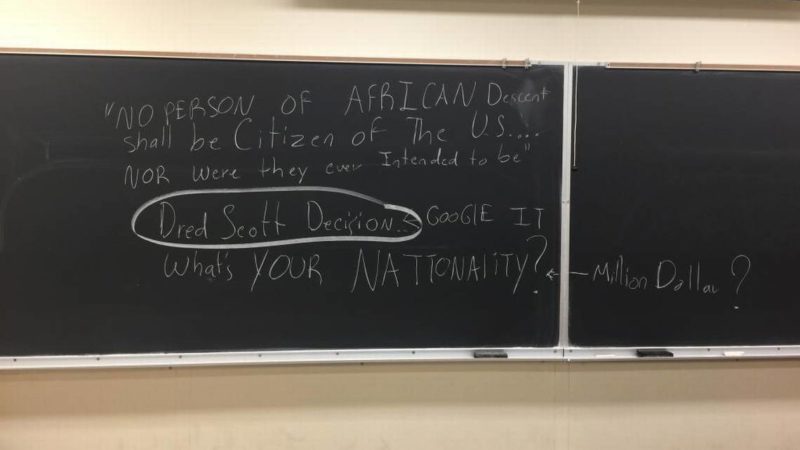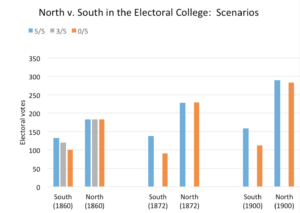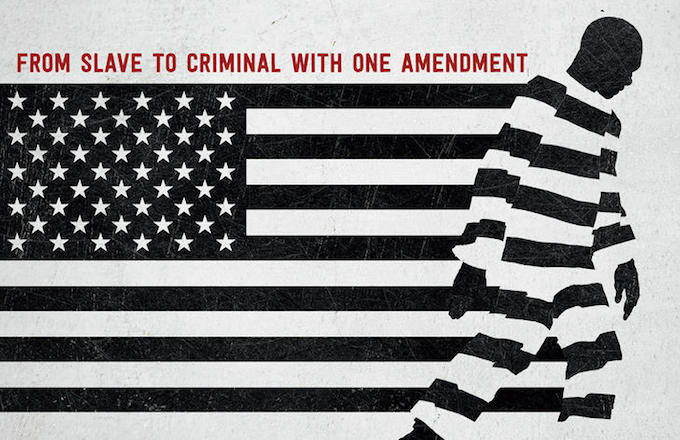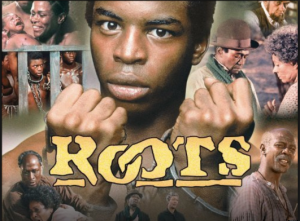
Race, Citizenship, and a Search for Intellectual Honesty
Perhaps I’ve been wrong about African American citizenship. The anniversary year of the Fourteenth Amendment’s ratification is upon us. 2018 marks 150 years since birthright citizenship was constitutionalized. I’ve told this story many times, even recounting it in an article for the Journal of the Civil War Era.[1] The Fourteenth Amendment ...
Read More
Read More
Reconstruction Scholars’ Public Engagement: Why It Matters
The recent Alabama senatorial race raised the specter of historians’ role in public debates. After suggesting antebellum slavery as a period of American’s greatness, one candidate dismissed the Reconstruction-era amendments and other amendments designed to create “a more perfect union” (except for the Bill of Rights).[1] Post-election demographic analyses revealed ...
Read More
Read More
It Was a Good Day: White Supremacy and Legal History
Today we share the final installment of our roundtable on Ta-Nehisi Coates's We Were Eight Years in Power. Scott Hancock is associate professor of History and Africana Studies at Gettysburg College, with expertise in Black northerners’ engagement with the law. Previous installments of the roundtable are available here, here, and here ...
Read More
Read More
The Long Struggle of African American Placemaking
Continuing our roundtable on We We Eight Years in Power, today we share a post by Kelly Houston Jones, an assistant professor of history at Austin Peay State University. Her research focuses on slavery, agriculture, and the environment in the trans-Mississippi South. Previous installments of the roundtable are available here ...
Read More
Read More
Author Interview: Sarah Gronningsater
In our June 2017 issue, Dr. Sarah Gronningsater published an article titled “‘On Behalf of His Race and the Lemmon Slaves’: Louis Napoleon, Northern Black Legal Culture, and the Politics of Sectional Crisis.” She is an assistant professor of history at CalTech in Pasadena, California, with an expertise in legal, ...
Read More
Read More
Recovering Southern Women: A Report from the OAH
In recent weeks, activists have spotlighted the disappearance of numerous young women of color from the District of Columbia and its environs—a reality, they allege, that was long underreported by public functionaries and local media.[1] Intentionally or neglectfully, these women’s voices and those of their communities were long silenced. As ...
Read More
Read More
Violence After Victory: Reconstruction Scholarship at the OAH
The streets, sidewalks, and facades of New Orleans’ famous Canal Street repeatedly bore witness to terrible outbursts of violence throughout the Reconstruction Era, as ex-Confederates tried to overturn the egalitarian reforms of Reconstruction through bloodshed and intimidation. Several of the most important massacres and street battles in the history of ...
Read More
Read More

Did Disenfranchisement Give the South an Electoral Advantage?
There has been much recent discussion of the three-fifths clause of the Constitution, which boosted slaveholding states’ representation in the Electoral College by including for apportionment a population that received no benefits from government. Scholars have debated how this influenced national politics under slavery, but this conversation applies to the ...
Read More
Read More

Mass Incarceration And Its Mystification: A Review Of The 13th
This article was originally published by The African American Intellectual History Society (AAIHS) and is reprinted here with permission. Although some of the material falls outside the temporal boundaries of this blog, we believe our readers will find it to be a valuable review, due to its connections to the Civil War. ...
Read More
Read More

Camp William Penn and the Fight for Historical Memory
If you were to drive down Cheltenham Avenue north of Philadelphia today between Penrose Avenue and School Lane, you would pass standard urban blocks, nothing extraordinary. A cemetery, gas station, a mixed collection of residences, and a community center. Casual passersby—many residents, even--do not recognize the historical significance of the ...
Read More
Read More

Witnessing Racial Violence: Public Awareness and the Battle of Ft. Pillow
In 2014, bystanders’ video evidence of Michael Brown and Eric Garner’s deaths at the hands of police thrust racial bias and police brutality against people of color into the national spotlight. Black Lives Matter subsequently became both a rallying cry and a movement, with followers asserting that the deaths of ...
Read More
Read More

Aiming for Accuracy: Free State of Jones, Contingency, and the Meaning of Freedom
Early in Free State of Jones a Confederate soldier proclaims he is not fighting for slavery but rather “for honor.” His comrades, including poor Mississippi farmer Newton Knight (Matthew McConaughey), needle him. Considering the "Twenty Negro Law,” Conscription Act, and tax-in-kind law, they point out that their blood only helps ...
Read More
Read More

Muhammad Ali’s Civil War Inheritance: A Historical Note
The death of Muhammad Ali reminded people here in America and across the world of the many ways in which his life had meaning beyond his triumphs in the boxing ring. As numerous people have recalled in recent days, Ali was more than a fierce boxer; he lived a fierce ...
Read More
Read More

Roots (1977) versus Roots (2016)
I was initially skeptical about the Roots remake (especially because of the History Channel’s involvement) and watched the original again to see if an update seemed warranted. I found that while still riveting, it has many shortcomings. The original mini-series inaccurately depicts West African kingdoms, for example, and glosses over the ...
Read More
Read More

Envying Roots: The 1970s Mini-Series is Back!
In the last several decades, African Americans have become avid genealogists, turning eagerly to Ancestry.com and DNA testing, joining clubs and traveling to the National Archives in an effort to fill in their family trees. Henry Louis Gates credits the original 1977 television series, Roots, for initiating this interest, saying ...
Read More
Read More

Slavery 101: Slate’s “History of American Slavery” Podcast
In the inaugural Slate Academy, Slate history writer Rebecca Onion, and Slate’s chief political correspondent, Jamelle Bouie offer a podcast series billed as the “college course you wish you’d taken.” Onion’s and Bouie’s course – The History of American Slavery – outlines the development of American slavery by focusing on ...
Read More
Read More
